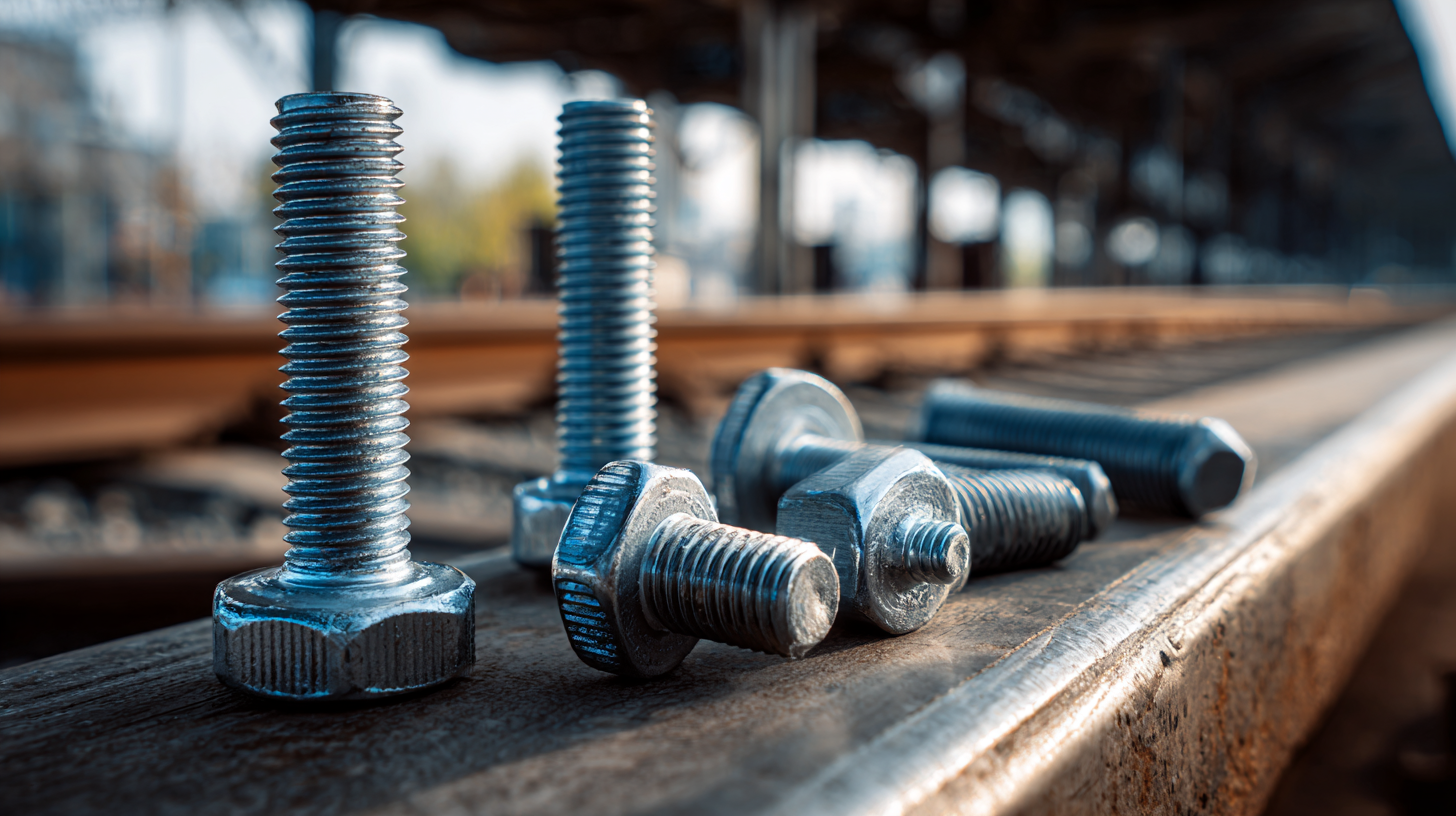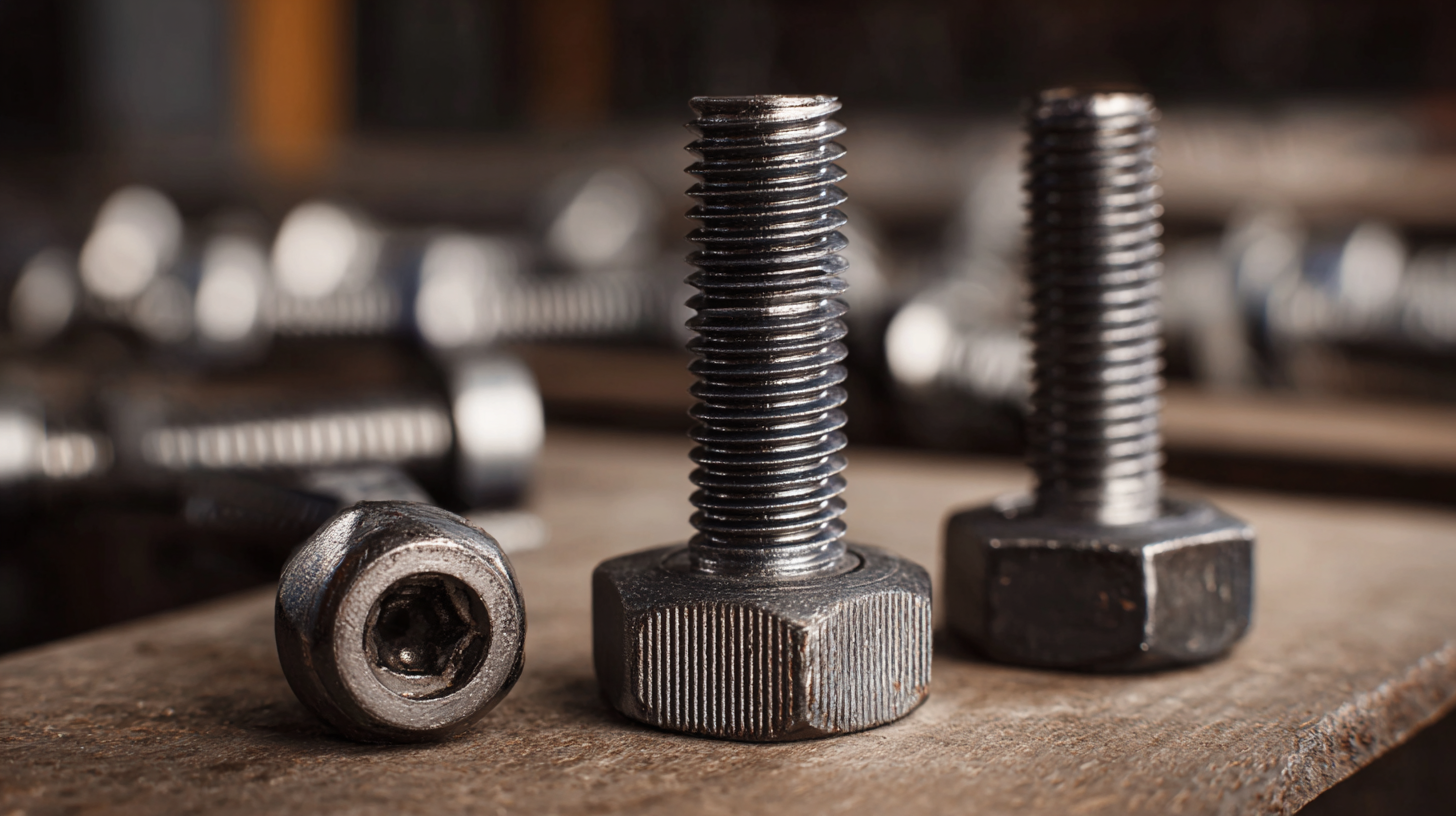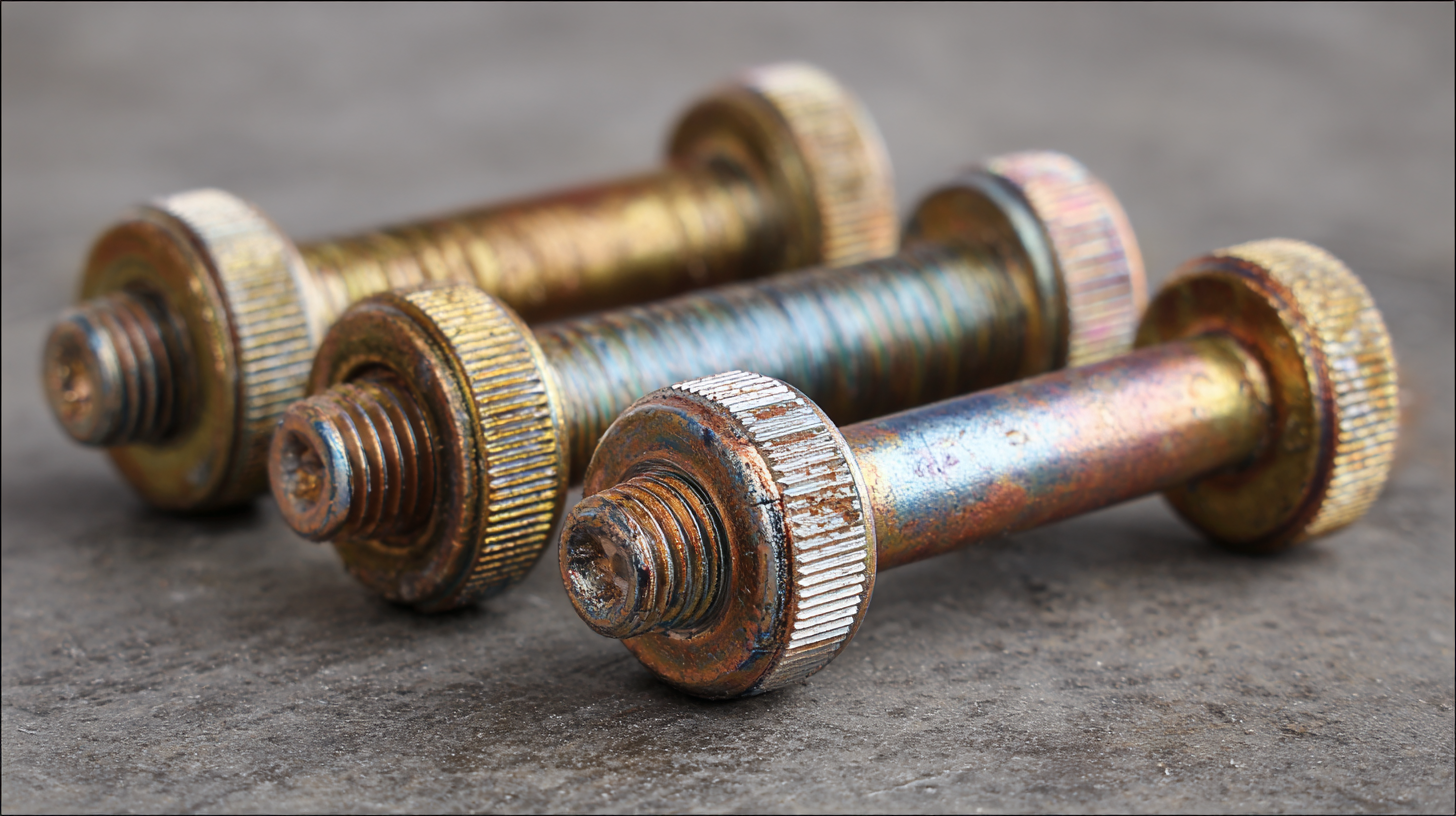5 Essential Tips for Choosing the Right Truss Head Carriage Bolt for Your Project
In the construction and woodworking industries, the choice of fasteners can significantly impact the integrity and durability of a project. Among the various types of bolts, the Truss Head Carriage Bolt has gained popularity due to its unique design and enhanced load distribution capabilities. According to industry reports, the global fasteners market was valued at approximately $82 billion in 2020, with an expected CAGR of 4.8% through 2027, highlighting the growing importance of selecting the right fastening solutions.

When working on projects that require secure and stable connections, understanding the characteristics and applications of Truss Head Carriage Bolts is essential. This blog aims to provide five essential tips for choosing the right Truss Head Carriage Bolt for your project, ensuring you make informed decisions that align with both safety standards and construction requirements.
Understanding Truss Head Carriage Bolt Specifications
When selecting the right truss head carriage bolt for your project, understanding the specifications is crucial. Truss head carriage bolts feature a low-profile, rounded head designed to distribute weight evenly, making them ideal for structural applications. The dimensions of the bolt, including its diameter and length, should match the requirements of your specific project. Always check your material thickness and load-bearing requirements to ensure proper fit.

One essential tip is to consider the material of the bolt. Common choices include stainless steel for its corrosion resistance, and carbon steel for general applications. Additionally, the finish on the bolt can affect its durability and aesthetic appeal. For outdoor projects, opt for galvanized or coated bolts to prevent rust and improve longevity.
Don’t forget about the thread type either. Fully threaded bolts increase gripping strength, while partially threaded options may be suitable for different applications where a smooth surface is preferred. Matching the bolt specification to the demands of your project not only enhances performance but also ensures safety and reliability.
Identifying the Right Material for Your Project Needs
When undertaking any project that involves the use of truss head carriage bolts, selecting the right material is paramount. The material not only determines the strength and durability of the bolt but also its susceptibility to environmental factors. For outdoor projects, consider opting for galvanized or stainless steel bolts, which offer enhanced resistance to corrosion and rust. This is particularly important for applications exposed to moisture or extreme weather conditions, ensuring a longer lifespan and maintaining structural integrity.

For interior projects or those in controlled environments, standard steel bolts may suffice. They provide adequate strength for various applications while being more cost-effective. However, if your project requires a more aesthetic finish, look into options like brass or coated bolts that can complement the design while still meeting functional requirements. By carefully analyzing the demands of your project and the environment it will face, you can make an informed decision on the right material for your truss head carriage bolts, ensuring they perform effectively and contribute to the success of your construction.
Selecting the Optimal Size and Length for Structural Integrity
When selecting a truss head carriage bolt for your project, understanding the optimal size and length is crucial for ensuring structural integrity. The size of the bolt refers to its diameter, which should be compatible with the materials you are fastening. A bolt that is too small may not handle the load effectively, while one that is too large can cause unnecessary stress on the material, leading to potential weakening or failure. To determine the appropriate diameter, consider the load requirements and the spacing of your fasteners, as these factors directly influence the bolt's performance.
Length is another critical factor to consider. The length of the truss head carriage bolt should be sufficient to penetrate the materials being joined while providing adequate threads for a nut or to engage in pre-drilled holes. It's essential to account for the thickness of the materials, as well as any additional components like washers or spacers. Measuring accurately and allowing for extra length to ensure a secure fit can prevent issues down the line. Ultimately, by thoughtfully selecting the right size and length, you can enhance the strength and durability of your project while ensuring it meets safety standards.
5 Essential Tips for Choosing the Right Truss Head Carriage Bolt for Your Project
| Tip | Description | Recommended Size | Applications |
|---|---|---|---|
| 1. Assess Load Requirements | Consider the load that will be applied to ensure the bolt can handle the stress. | 1/4" to 1/2" | Wood structures, furniture |
| 2. Select the Right Length | Measure the thickness of materials to choose an appropriate bolt length. | 1" to 4" | Construction frameworks |
| 3. Consider Material Type | Choose between steel, stainless steel, or galvanized options based on environmental conditions. | Stainless Steel | Outdoor structures, marine applications |
| 4. Check Thread Type | Ensure the bolt's thread type matches the nuts or materials you're using. | Coarse thread | Heavy-duty applications |
| 5. Verify Finish Type | Choose a finish based on aesthetic and protection requirements against corrosion. | Galvanized | Industrial and outdoor use |
Evaluating the Appropriate Coatings and Finishes
When selecting the right truss head carriage bolt for your project, evaluating the appropriate coatings and finishes is crucial to ensure durability and functionality. Protective coatings can significantly enhance the lifespan of your hardware by resisting corrosion, wear, and environmental damage. For example, a galvanized finish provides excellent rust resistance, making it ideal for outdoor applications. Similarly, a black oxide finish not only offers some protection but also gives a sleek and professional appearance.
Another consideration is the compatibility of the coating with your project's specific requirements. For projects involving wood, a smooth finish may help prevent splitting during installation, while a rougher texture can enhance grip when working with metal surfaces. Additionally, you'll want to assess whether the finish can withstand the environmental conditions your project may encounter, such as moisture or extreme temperatures. Investing time in selecting the right coating can save you from costly repairs in the long run.
Assessing Load Capacity and Performance Requirements
When selecting the right truss head carriage bolt for your project, it’s crucial to assess its load capacity and performance requirements. Just as innovative methods for evaluating performance in HVAC systems have emerged to meet increased cooling demands, the same principle applies when it comes to choosing fasteners. Understanding the load-bearing capacity of the bolt ensures that it can support the weight and stress it will encounter in your specific application. This involves calculating the anticipated loads, including those from dynamic forces and environmental conditions, to ensure long-term reliability.
Moreover, just as advancements in material performance, such as the use of recycled concrete for sustainable road construction, have been established, selecting bolts made from high-quality materials is vital. You want to ensure that the bolts not only meet load capacity criteria but also excel in durability and resistance to corrosion. Comprehensive performance evaluation methods, akin to those used in recent studies on structural materials, can guide you in identifying the right type of carriage bolt that aligns with your project’s goals, ensuring safety and structural integrity.
Load Capacity Comparison of Truss Head Carriage Bolts
This bar chart illustrates the load capacity of various diameter truss head carriage bolts. Choosing the right bolt is crucial for ensuring adequate performance and safety in your project.
Related Posts
-

7 Compelling Reasons Why Square Neck Bolts Are Essential for Your Projects
-

How to Choose the Right Truss Head Carriage Bolt for Your Project
-

The Ultimate Guide to Choosing the Right Furniture Screw for Your Projects
-

7 Best Tips for Choosing the Right Stainless Bolt for Your Project
-

7 Tips for Choosing the Right Button Head Bolt for Your Project
